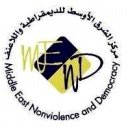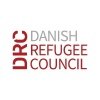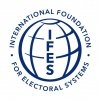Baseline Study
URGENT: Terms of Reference (Tor) Baseline Study: Connection for Peace: Powerful Local Peacebuilding and Policies 2024-2031
Purpose Consultancy to conduct the country- and regional-level Baseline Study of the Connection for Peace in Occupied Palestinian Territories
Powerful Local Peacebuilding and Policies 2024-2031
Budget Maximum budget is 15,000 euros (including taxes)
Duration consultancy 01 January 2025 - 31 March 2025
Deadline application Tuesday December 31 2024 3:00 PM [ OPT - Time], to [email protected]
Overview of the Consultancy
Middle East Nonviolence and Democracy is a highly regarded organization based in Jerusalem, committed to advancing social justice, human rights, and community empowerment. With a robust track record of implementing impactful programs, MEND has empowered marginalized communities by
equipping them with tools and platforms to advocate for their rights, particularly through
participatory videos and community-led initiatives. MEND is a member of the GPPAC MENAPPAC network. The GPPAC MENAPPAC network unites civil society organisations dedicated to preventing violent conflict and fostering peace across the region. The GPPAC MENAPPPAC network is one of the fifteen regional networks part of the Global Partnership for the Prevention of Armed Conflict (GPPAC), the world’s largest member-led network of local peacebuilders, uniting over 200 civil society organisations around the world.
MEND takes part in the program "Connection for Peace: Powerful Local Peacebuilding and Policies 2024-2031," funded by the Dutch Ministry of Foreign Affairs as part of the Contributing to Peaceful and Safe Societies (CPSS) grant policy framework. The programme takes root in four countries - corresponding to three GPPAC regional networks: Niger (West Africa), Occupied Palestine Territories (Middle East & North Africa), Somalia, and Uganda (Eastern & Central Africa). Leveraging a Network Approach, the program aspires to extend its reach beyond these priority countries, integrating GPPAC regional networks and the global GPPAC network through learning, exchange, and policy influencing.
To this end, MEND is seeking a consultant to undertake the baseline study for the OPT and MENAPPAC from January 2025 to March 2025. Rooted in the principles of participation and inclusion[1], the baseline study is envisioned as a collaborative effort. The consultant(s) will work closely with MEND, the regional secretariat (based in Beirut) and key stakeholders to co-design and conduct the study, ensuring its findings are relevant, owned by the community and the network members, and practically applicable to further inform the program[2]. To effectively build the program and its connections from the local level to the global level, GPPAC will organise five baseline studies; one each at the country level that also engages the relevant regional GPPAC network, together with one global GPPAC network-level study, which will be informed by the insights gained from the country-level studies, while also considering the broader context of the GPPAC network. Further details about the program and its objectives are available on the next page.
Background and Context
The OPT face complex and multi-layered challenges due to prolonged conflict, occupation, and socio-political fragmentation. In this context, local peacebuilding initiatives have emerged as vital tools for addressing community-level tensions and fostering resilience. Despite the difficult circumstances, civil society organizations, including MEND, continue to demonstrate leadership in advocating for peaceful and equitable solutions.
The Connection for Peace program seeks to build on these efforts by strengthening the capacity of local peacebuilders and amplifying their voices within regional and global policymaking arenas. It emphasizes collaboration, learning, and sustainability to tackle the root causes of conflict and support communities in navigating the challenges they face
Programme Objectives
Programme objective 1: Foster sustainability of local peacebuilding action
Intervention strategies objective 1:
Programme objective 2: Strengthen rigour and realism of peacebuilding policies
Intervention strategies objective 2:
At the country level, the program prioritizes addressing structural inequalities, mitigating the impact of conflict on vulnerable populations, and promoting inclusive dialogue. These efforts aim to empower local actors, foster inter-community trust, and influence policies that reflect and address the nuanced realities on the ground. By prioritizing local expertise and fostering a more inclusive approach to peacebuilding, the program seeks to catalyze change and create sustainable pathways to peace for the people of the OPT.
If you have related experience and interested please CLICK HERE to check the tender document





















